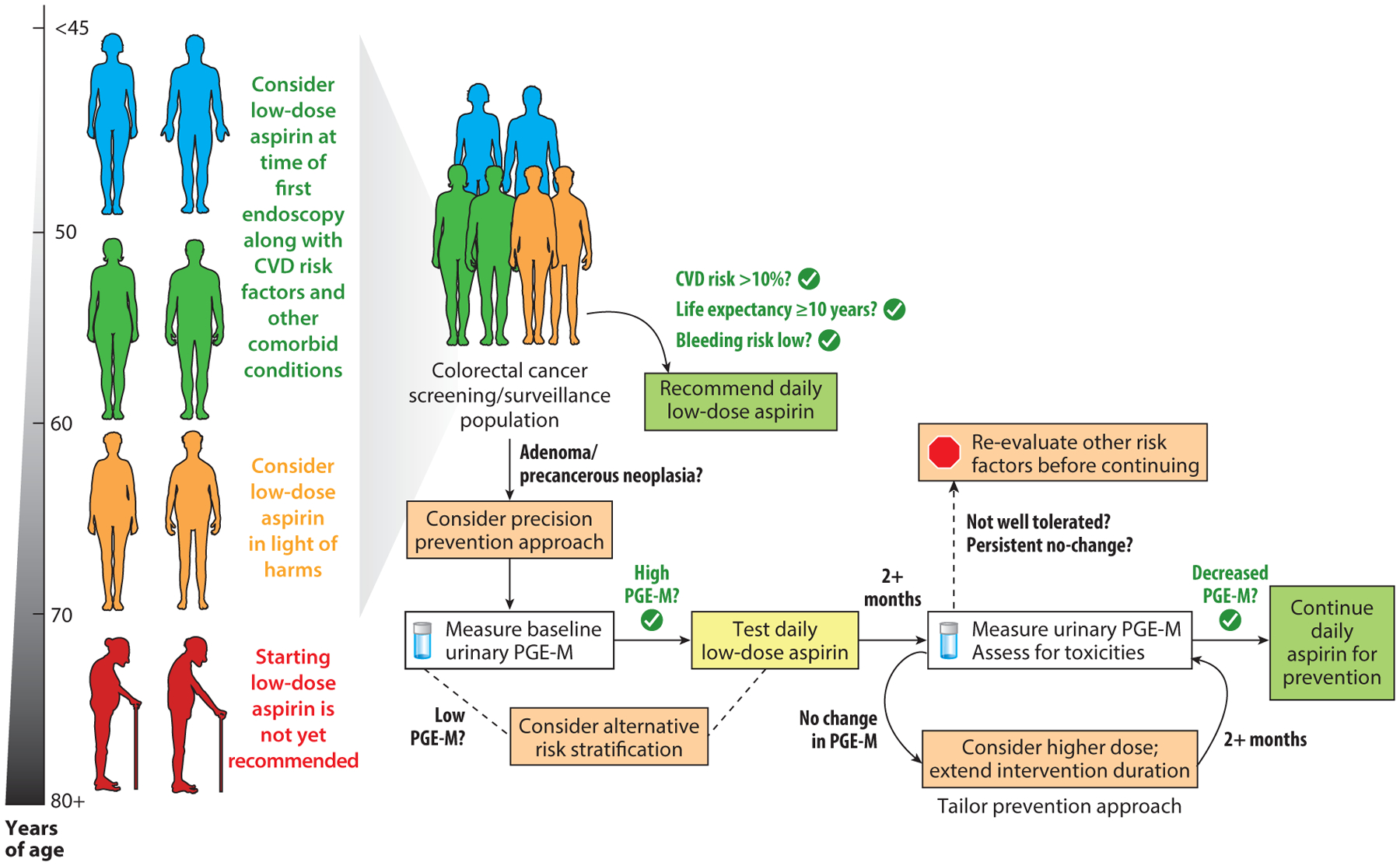Figure 1.

A model for precision chemoprevention in clinical decision making. Physicians may consider timing a discussion of use of aspirin for primary prevention to coincide with an individual’s first screening colonoscopy (recommended between ages 45 and 50). For individuals under age 60, after consideration of cardiovascular disease (CVD) risk factors, life expectancy, and risk for bleeding events, providers may recommend aspirin directly. For individuals over age 60, providers may want to consider colorectal cancer (CRC) risk factors, including the presence of adenomas and baseline levels of potentially modifiable biomarkers for CRC risk. In this example, we use urinary prostaglandin metabolites (PGE-M) as a risk biomarker that has recently been shown to be modifiable as a potentially useful precision tool to monitor a possible aspirin chemoprotective benefit while also monitoring for potential harms; PGE-M can help tailor individual strategies according to aspirin dose, duration, and continuation of use. Precision prevention strategies may be extended to those of advanced age (70 years or older); however, significant considerations of harms is warranted before starting an aspirin prevention regimen.
